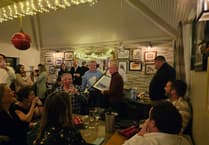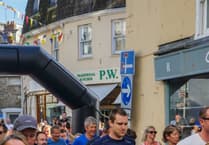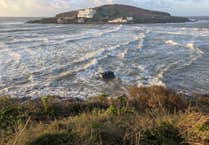Almost 20 per cent of 999 calls deemed ‘non life-threatening’ have to wait more than an hour for an ambulance according to figures from South West Ambulance Service.
And almost 10 per cent have to wait more than an hour and a half.
The Trust was responding to a freedom of information request for ‘low priority’ 999 call times between October 2014 and September 2015 in the TQ7 and TQ8 postcode areas – covering Kingsbridge, Salcombe and the surrounding villages. The request followed an incident, reported in the Gazette last month, when an elderly gentleman known as Ernie, was left lying on the pavement being cared for by members of the public for two hours before an ambulance eventually arrived to take him to Derriford hospital.
Last month, an article on the BBC website drew attention to the staff shortages being suffered by the SWASFT and the impact that this is having on the service they offer.
Gareth Ward, a South West Ambulance Service paramedic told Clare Woodling from BBC Radio Devon that sickness and stress had resulted in instances of on-duty staff using cars instead of ambulances.
A spokesperson for SWASFT said this week: ‘The shortage of frontline paramedics is a national problem and SWASFT is working hard to minimise the impact in the south west.
‘The safety of our staff and patients is of paramount importance and the number of vacancies continues to reduce.
‘The trust is supporting and funding staff to become registered clinicians as well as recruiting paramedics directly from universities to ensure a constant flow of graduates.
‘While 82 per cent of patients received a response within the target-time of 60 minutes, the trust absolutely acknowledges there is room for improvement; we know that people want their ambulance service to provide a timely response alongside excellent clinical care.
‘All calls to 999 must be prioritised and on occasions the number of life-threatening emergencies in a given area impacts the trust’s response times to patients with lower priority needs.
‘The trust continually monitors demand for services to endeavour to provide the correct resources to respond to emergencies.’
A spokesman for the NHS Northern, Eastern and Western Devon Clinical Commissioning Group said: ‘We are sorry to hear that Ernie waited two hours for an ambulance, though we understand from South Western Ambulance NHS Foundation Trust that a trained medic was on the scene within 30 minutes to treat him.
‘We are working closely with SWASFT to ensure all targets are met, as well as what we can do to ensure we quickly respond to people in the more rural areas of Devon.’
When the issue was raised with Local MP Dr Sarah Wollaston she responded: ‘This is an example of why we should retain the ability for the press to use FOI because it is in the public interest.
For more on this story, see this week’s Kingsbridge & Salcombe Gazette




Comments
This article has no comments yet. Be the first to leave a comment.